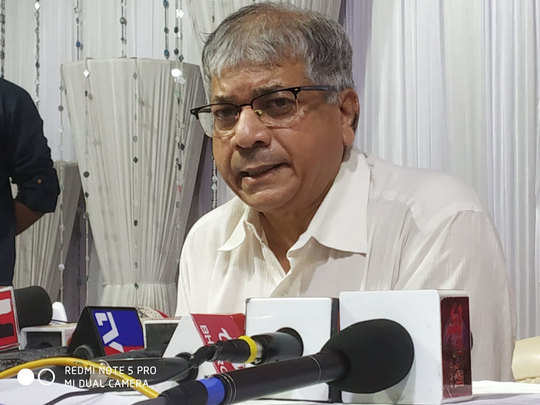
Sanjay Patil : Nagpur Media Press : 7 July 2020 : Elections to the Bihar assembly are round the corner. No wonder the prime minister has found fifteen minutes of air time to focus on the poor. They are to be bestowed some additional rations till the end of November.
Cannily, Narendra Modi took care to make mention of all the Hindu festivals that will intervene till the elections are announced, including most appositely the Chhath puja event specific to Bihar. One heard no mention of either Eid or Guru Purab, not to speak of Christmas that will follow in December.
Thus, after three months or so of silence – months during which these same poor people were trudging the nation’s highways without food or water or medicine or pocket money, and without public transport – Bihar’s sans-culottes have been reminded that the prime minister cares.
Oddly, one does not know whatever happened to the PM CARES fund – who paid into it and where it went. God forbid that there should be an audit. Nitish Kumar, the chief minister of Bihar who remained reluctant to touch the sans-culottes even with a barge pole, has tweeted to own his electorate, and the Bharatiya Janata Party (BJP) in Bihar is tasked to drive home the prime minister’s munificence till the votes are cast.
Expected discord
Among the opposition parties in Bihar, there is the expected discord. Factions of the alliance led by Jitan Ram Manjhi, Upendra Khushwaha and other smaller groups are unwilling to accept Tejaswi Yadav of the largest party, the Rashtriya Janata Dal (RJD), as leader of the alliance, and, by inference, as their chief ministerial candidate.
The RJD, in turn, has made it known that the leadership issue is “non-negotiable.” Everyone seems to be turning to the Indian National Congress, and Rahul Gandhi especially, to find a resolution that may be acceptable to all constituents of the opposition alliance. Unenviable onus, at best of times. It may well be that, when all is said and done, the man who may pull opposition chestnuts out of the fire will still be the redoubtable Lalu Prasad Yadav.
As to the Left, it remains to be seen whether it will continue to plough a lonely furrow or catalyse an effective collectivisation among all opposition forces.
Of all-important significance will be how the poor now being courted by the prime minister may or may not swallow the ignominy they have suffered for brutal months of neglect and travail. Will their experience of class oppression supercede their customary caste loyalties, or will politics in Bihar revert to concern about social identities?
And will the major and minor factions of the opposition alliance be able to intervene in that conundrum in new ways that may yield something of a people’s front against traditions of hoodwinking propaganda. And then the likely logistics of the Bihar elections to come: how fairly and intelligently may the Election Commission be able to organised the poll, given the COVID-19 factor; and to what extent may disarray in that organisation vitiate both the casting of votes and the resultant outcome.
Already questions are being raised by opposition parties, including the Indian National Congress, about the desirability of taking recourse to the postal ballot route for elderly voters. The apprehensions may be well placed, given the scope here for misuse. Not to speak of the fact that any such move by the Commission should have had the prior consent of all parties. Lacking that, this move is only likely to bring into question the outcome of the poll.
What happens in Bihar will not but have consequences for the subsequent polls in West Bengal, where the party juggernaut led by Amit Shah sees an opportunity to reap the benefits of no-holds-barred polarisation.
The Congress and its organisational stalemate
On a related matter: however the Indian National Congress continues to be bogged down by an organisational stalemate, the party has been noticeably active on all issues of concern, and visible on the street. It should be clear by now that most rank and file in the Congress see in Rahul Gandhi the fittest political prospect. This should not surprise. Rahul Gandhi has demonstrated a dour will to carry on questioning the saffron outfit without let or hindrance, be it on social/communal issues, the economic rout, or the holes in claims about security muscle and foreign policy.
In giving a long rope to his party to find his successor, the Congress has for all purposes confessed to its inability or unwillingness to find an alternate leadership. No Congressperson barring an articulate handful seem to want to take the electoral route to organisational renewal. The Gandhis may well say that it is time to absolve them of the charge of grab. It will be interesting to see what transpires in the oldest party before the Bihar polls.
There are elements in Rahul Gandhi’s ideological clarity that, if pressed and harnessed, can re-direct the Congress to a politics that can yield long-term fruit both for the party and the republic. One thing should be clear enough: there is no demise of the party in sight, and no prospect of a Congress-less challenge to the ruling Bharatiya Janata Party. Given that situation, how may the equation between the Congress nationally and its allies in the regions shape in the months to come.
Will the Bihar polls inaugurate a new political vision among secular political outfits, or will the so-usual collapse follow? And will the combined secular opposition find a way to insert the world-wide social protest against historical injustices and a collaborating state apparatus into a people’s assertion against the status quo?










